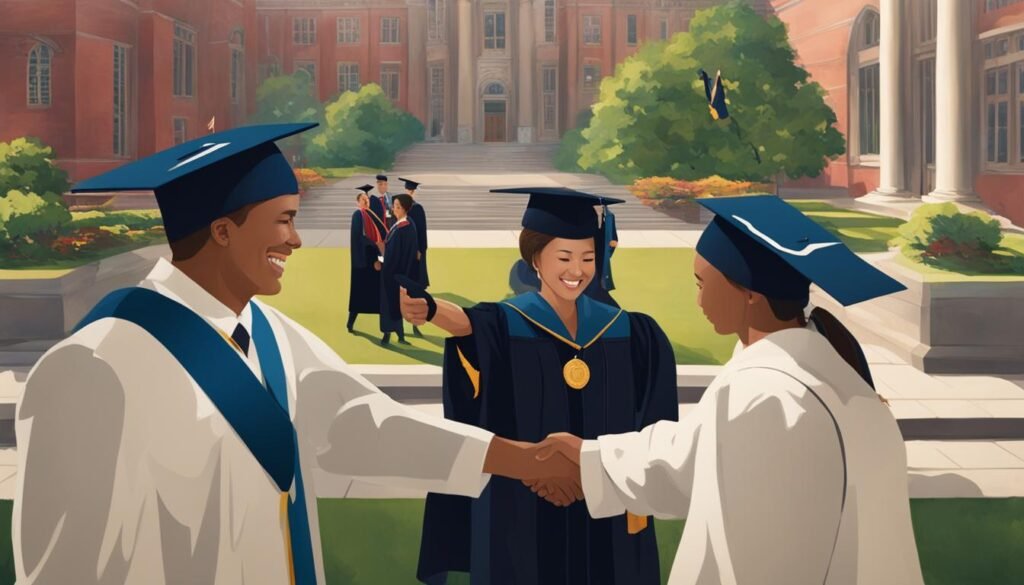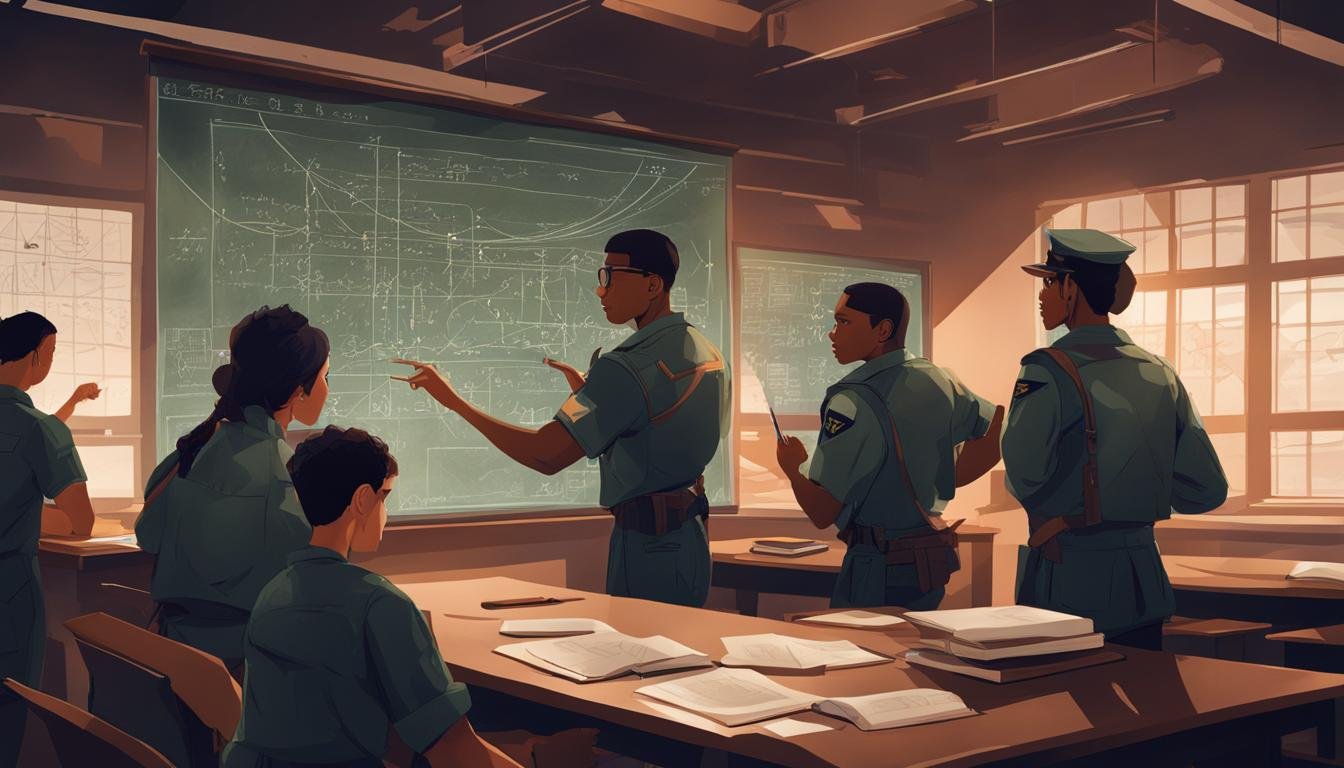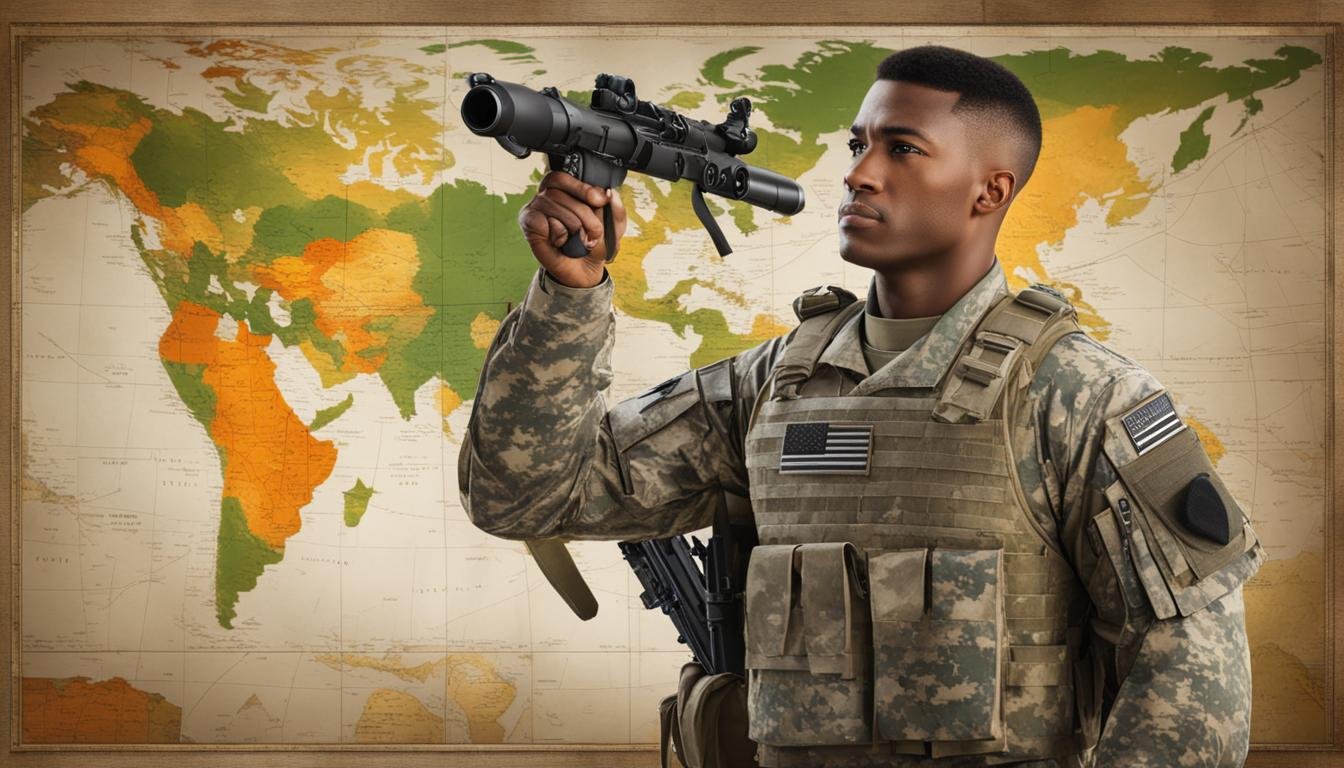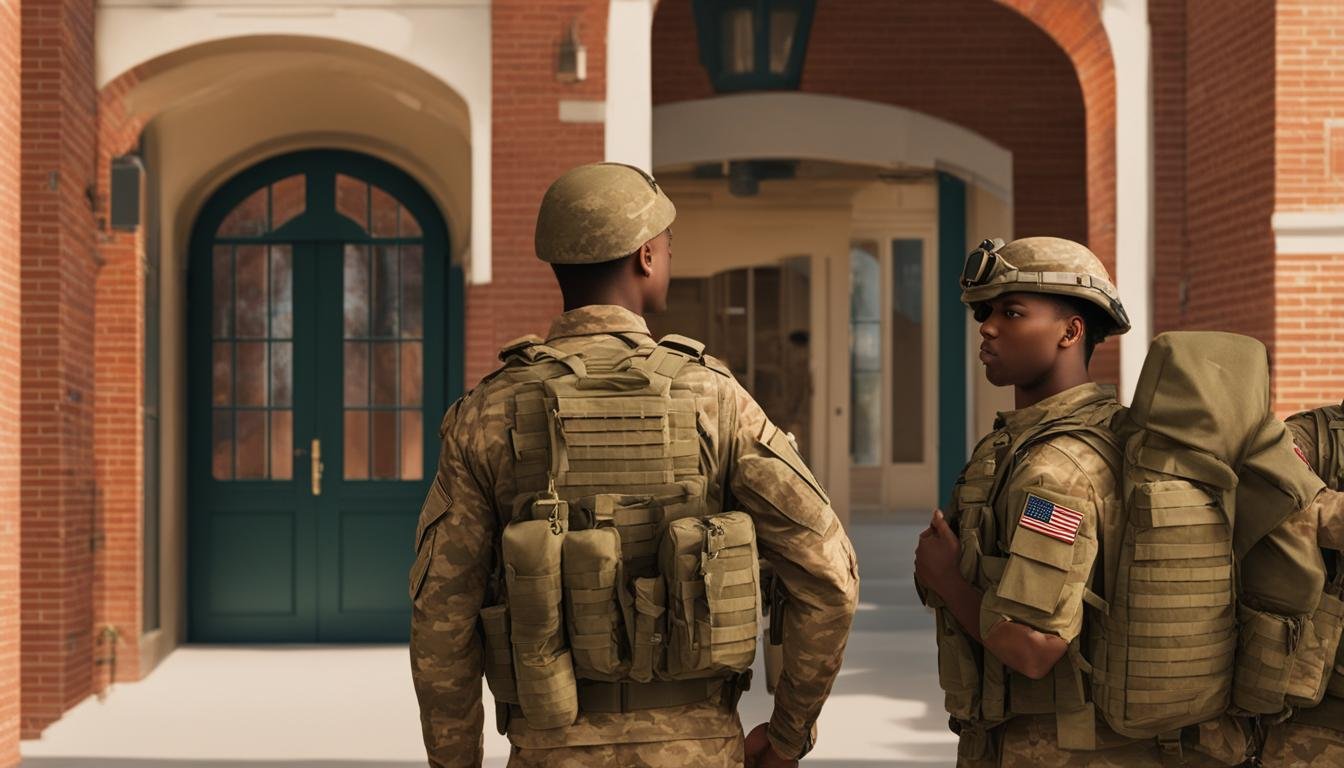In today’s evolving landscape of education, the integration of military training into higher education is a topic of increasing importance. The benefits of military experience in college are numerous, from the development of valuable skills to the promotion of critical thinking abilities. Exploring the intersection between military and academic worlds can lead to a more holistic and enriching educational experience.
Key Takeaways:
- Military skills have a place in academia and contribute to well-rounded education.
- Integrating military training into higher education bridges the gap between military and academic worlds.
- Military experience brings unique benefits to college campuses and enhances the learning environment.
- By recognizing and valuing the skills gained through military training, colleges and universities can better support veteran students.
- Maximizing the value of military service in college requires a concerted effort from both institutions and individuals.
Bridging the Gap Between Military and Academic Worlds

As military veterans return to higher education, there is a growing need to bridge the gap between the military and academic worlds. Veterans bring with them unique skills and experiences that can greatly benefit the academic community. Research shows that student veterans often outperform their civilian counterparts, earning higher GPAs and displaying strong technical skills that are transferable to academic settings. Their diverse perspectives and life experiences enrich the classroom environment for all students.
To fully leverage the value of military training in higher education, institutions should focus on promoting the transferability of military skills, providing tailored support and resources to meet veterans’ needs, and creating pathways for their academic success. By recognizing the relevance and applicability of military skills in academia, colleges and universities can better support and engage veteran students.
“Veterans bring unique skills and experiences that can greatly benefit the academic community.”
One way to bridge the gap is through the creation of specialized programs that translate military training into academic credit. This acknowledges the skills veterans have acquired during their service and allows them to progress more efficiently in their educational journey. Additionally, offering mentorship programs and targeted support services specifically designed for veterans can facilitate their transition into higher education, helping them navigate the academic landscape and address any challenges they may face.
By fostering collaboration between military and academic communities, institutions can tap into the vast potential of veterans and create a welcoming and inclusive environment that maximizes their value in college. Through these efforts, the transferability of military skills can be promoted, and the unique contributions of veterans can be fully realized, benefiting the entire higher education community.
Military Training as a Valuable Asset in Higher Education
Military veterans bring valuable skills and experiences to the college campus, making their military training a valuable asset in higher education. Their strong leadership, discipline, and work ethic contribute to a positive learning environment and enrich the college experience for all students.
Recognizing and maximizing the value of military service in college requires institutions to tailor their support and resources to meet the unique needs of veteran students. One way to do this is by offering credit for military experience, allowing veterans to apply their training towards their academic coursework. This recognition not only acknowledges their skills and knowledge but also accelerates their progress towards degree completion.
In addition to credit for military experience, colleges and universities can create specialized academic programs for veterans. These programs can offer tailored coursework that builds on their military training and aligns with their future career goals. By providing targeted educational opportunities, institutions can help veterans transition smoothly from military service to academic success.
Serving Those Who Have Served: Specialized Support Services
To truly maximize the value of military service in college, it is essential to provide specialized support services for veteran students. These services can include dedicated advisors who understand the unique challenges veterans face and can provide guidance on navigating the complexities of higher education.
Furthermore, mental health support is crucial for veterans who may be dealing with the aftermath of their military experiences. Colleges and universities should prioritize the availability of counseling services tailored to the specific needs of veterans, ensuring they have access to the support they need to thrive academically and personally.
| Support Services for Veteran Students | Benefits |
|---|---|
| Specialized academic advising | Guidance tailored to veterans’ unique needs |
| Mental health support | Addressing the psychological impact of military experiences |
| Peer support networks | Building a sense of community and camaraderie |
| Transition assistance programs | Assisting veterans in adjusting to the academic environment |
By offering specialized support services, colleges and universities can create a welcoming and inclusive environment for veteran students, ensuring they have the resources and support necessary to thrive academically and make the most of their military service.
How Can Military Training Benefit Higher Education and College Degrees?
Military training for college degrees offers valuable skills such as leadership, discipline, and problem-solving. These attributes can enhance a student’s academic performance and prepare them for future success in their chosen career. Additionally, military experience can also provide college credit, reducing the time and cost of obtaining a degree.
Conclusion
Military training plays a vital role in higher education, offering a range of valuable skills that can greatly benefit students and institutions alike. By integrating military training into academia, the gap between the military and academic worlds can be bridged, promoting the transferability of military skills and fostering a more inclusive learning environment.
By maximizing the value of military service in college, institutions empower veterans in their educational journeys. Recognizing the unique contributions of veterans and providing tailored resources and support services, colleges and universities can create a welcoming atmosphere that enables veterans to succeed academically.
The promotion of the transferability of military skills is essential. Leveraging the skills gained through military training not only benefits veterans but also enhances the learning experience for all students. Leadership, discipline, and critical thinking are just a few of the valuable qualities developed through military training that can contribute to academic success.
By fully embracing the value of military training in higher education, we can create an environment where veterans thrive, their experiences are acknowledged, and their skills are valued. Through this collective effort, the potential of military training in higher education can be fully realized, benefiting individuals, institutions, and society as a whole.



